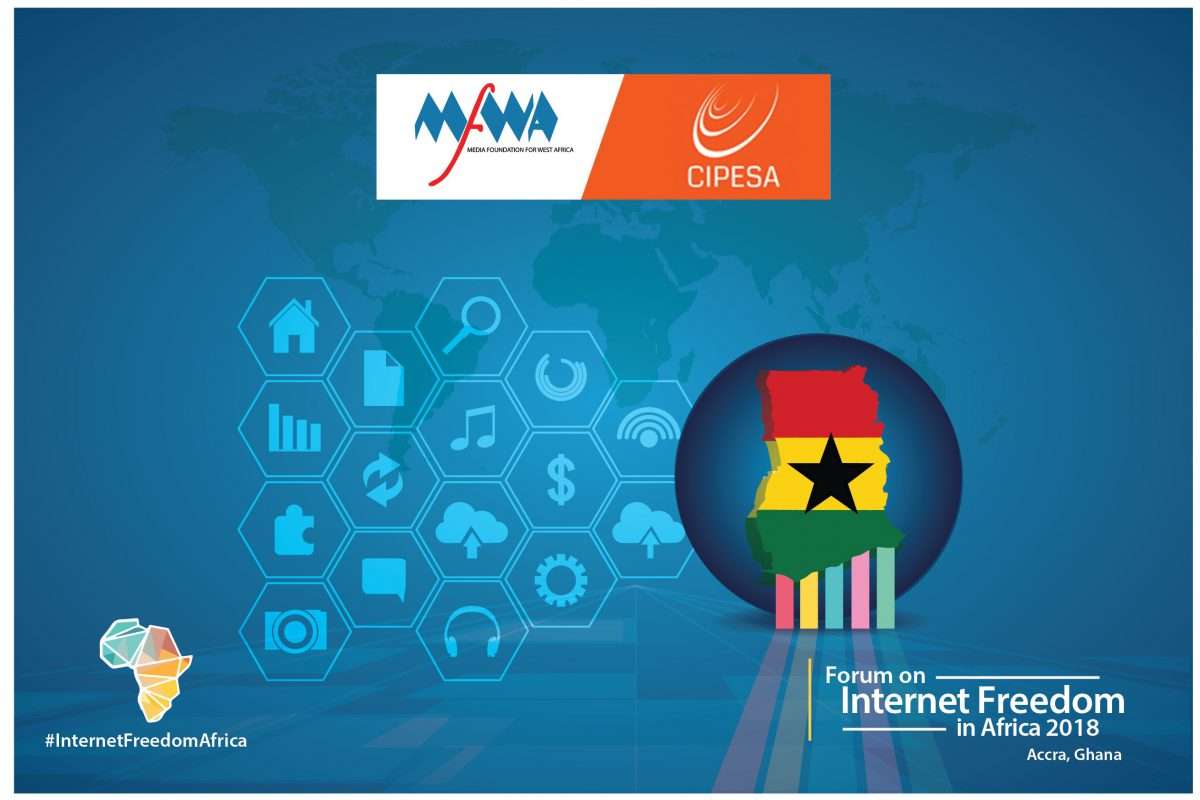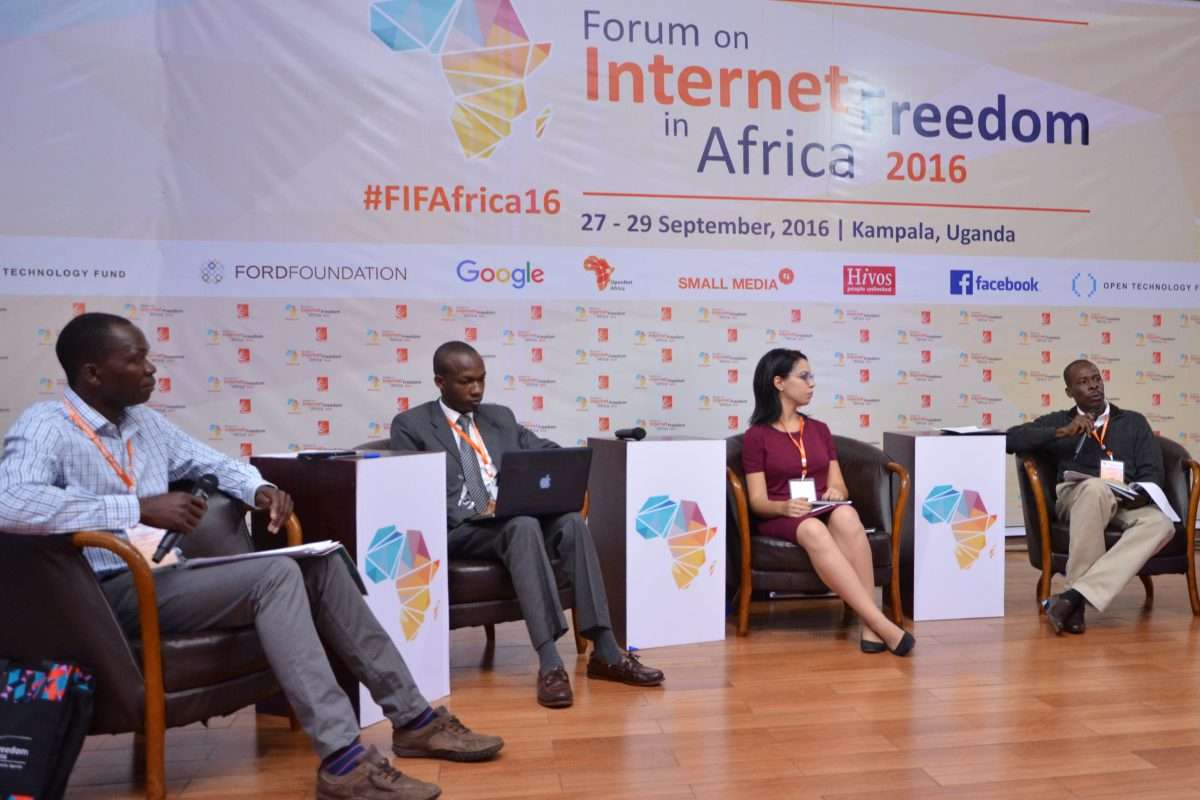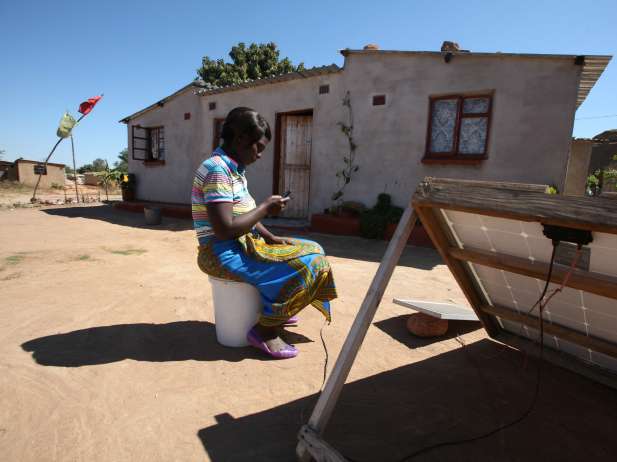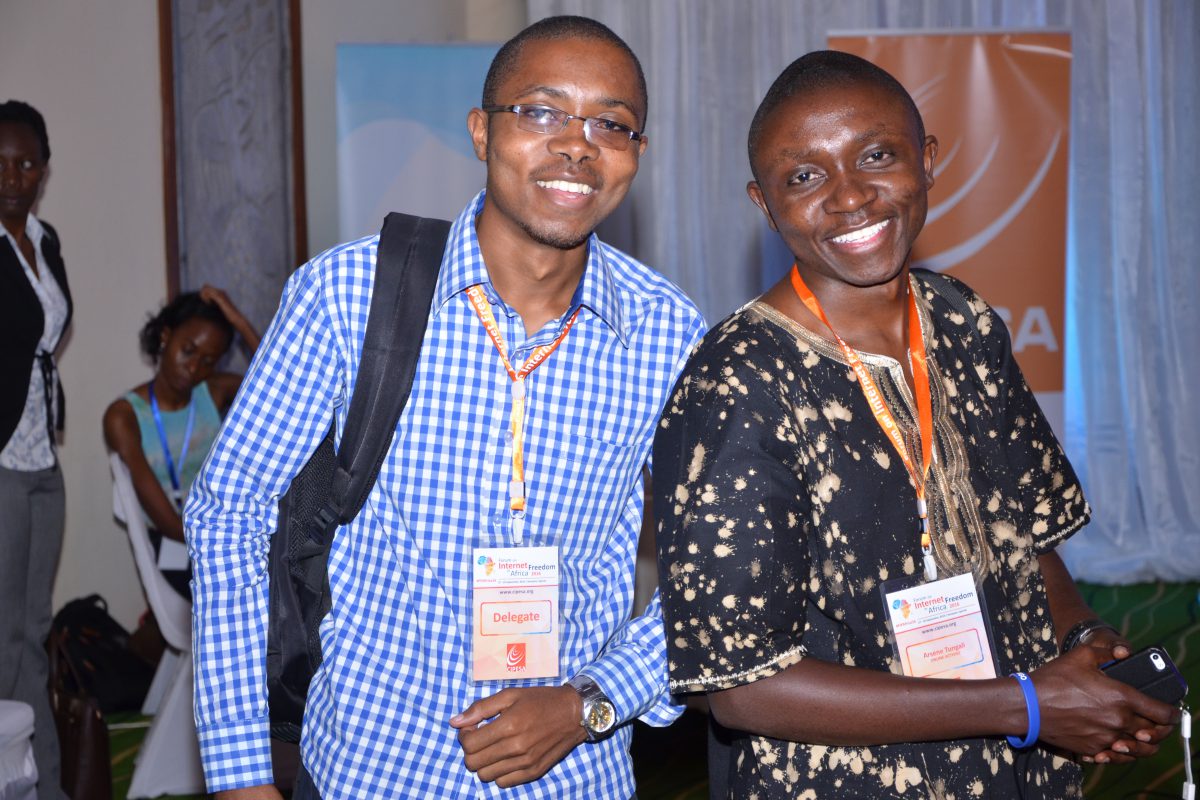DataCon Africa, established as a spin-off event of CDAO (Chief Data & Analytics Officer) will see international and local industry experts from various industries discuss challenges within data governance such as data remediation, enrichment, breaking down the silos, data security and more. Culture Change and Change Management is becoming of utmost importance as organisations are looking to become data-driven before they are left behind and DataCon Africa will host workshops on these subjects.
For more information on this event, please click here.
MFWA to Co-Host Africa’s Biggest Internet Freedom Event
Announcement |
From September 26 to 28, 2018, the Media Foundation for West Africa (MFWA) will co-host Africa’s biggest Internet freedom forum in Accra, Ghana. The annual convening, which is dubbed Forum on Internet Freedom in Africa (FIFAfrica) brings together key stakeholders in the Internet governance and online/digital rights environment from the continent and beyond.
The MFWA will be hosting the forum jointly with the Uganda-based organization, Collaboration for International ICT Policy in East and Southern Africa (CIPESA). The forum is convened annually by CIPESA to deliberate on developments, challenges, opportunities and ways of improving the Internet ecosystem in Africa. Participants also adopt strategies aimed at enhancing citizens’ digital or internet rights on the continent.
This is the first time the FIFAfrica event is being held in West Africa. Last year’s event was held in South Africa while the maiden event in 2014 and subsequent editions were held in Uganda.
The internet has become a vital tool for enhancing freedom of expression, access to information and citizens’ participation in national discourse and governance. At the same time, it is the target of hostile policies and practices by some governments. It is thus important for all stakeholders to dialogue on how to preserve the internet for development.
“The MFWA is delighted to co-host this important continental forum on Internet freedom. There couldn’t have been a better time to host this event in West Africa as the region is currently witnessing significant developments and challenges in the internet environment,” said Sulemana Braimah, Executive Director of the MFWA.
Online freedom of expression has come under attack in recent years in Africa. Over the past one year, countries such as Kenya, Uganda and Tanzania have passed laws to restrict internet freedom. There have also been network disruptions and shutdowns in about seven African countries over the same period. Besides, there have been increasing incidents of arrest and detentions of citizens, bloggers and journalists for their social media activities.
The FIFAfrica event will also coincide with the International Day for Universal Access to Information (IDUAI), which is observed on September 28 each year. The day has been set aside by the UNESCO to mark the importance of universal public access to information and protection of fundamental freedoms.
The FIFAfrica event is scheduled to take place at the La-Palm Royal Beach Hotel in Accra, and is expected to host about 300 participants from dozens of countries in Africa and around the world.
You can learn more about the event by visiting the event website at: https://cipesa.org/fifafrica/ or follow the #FIFAfrica18.
For further information or inquiries, kindly contact Felicia Anthonio on [email protected] or +233 206 972 867.
This statement was originally published on mfwa.org on July 4, 2018 and Africafex.org.
The Internet Shutdown In Ethiopia Costs The Country Approximately $500,000 A Day In Lost GDP
Tweet
By Tefo Mohapi |
In October 2016, Ethiopia declared a state of emergency which saw it impose certain measures that included telecommunications, media and Internet shutdowns along with travel restrictions on diplomats and a dusk-to-dawn curfew, to name a few of the measures implemented. The state of emergency, effective from 08 October 2016, comes as a result of about five hundred people being killed in protests in the Oromiya region surrounding the capital Addis Ababa and other parts of Ethiopia since 2015. This is, as reported, after anger over a development scheme for the capital sparked broader anti-government demonstrations over politics and human rights abuses.
Ethiopia is not new to Internet shutdowns with another Internet shutdown taking place as recently as July 2016 with the government stating that it took this drastic measure to prevent leakages during the national exams.
Internet Shutdowns Across Africa
At the recently held Forum for Internet Freedom in Africa 2016 in Kampala, Uganda a panel on the opening day discussed “Internet Shutdowns and Internet Rights” and asked the pertinent question – “Where do we draw the line?”

Panel on “Internet Shutdowns and Internet Rights” featuring Ephraim Kenyanito, Yosr Jouini, Arthur Gwagwa, Arsene Tungali and Wisdom Donko.
In 2016 alone, the panel noted, Africa has experienced Internet shutdowns or social media bans in several countries including Zimbabwe, Uganda as well as Ethiopia. Notably, these shutdowns or bans typically revolved around political unrest or elections.
Furthermore, as noted during the discussion, Internet shutdowns can cost a country’s economy quite a substantial amount of money with the 2016 Uganda Internet shutdowns rumored to have cost the country $26 million considering it also involved the shutdown of mobile money services for several days around the 2016 Ugandan Presidential election period.
- But what exactly is an Internet shutdown?
- What role do telcos play during an Internet shutdown?
- Are we perhaps overstating the severity of Internet shutdowns considering low Internet penetration rates?
$500,000 A Day
Technically speaking, and as witnessed across different countries in Africa and as discussed on the panel, an Internet shutdown usually involves a government’s ministry typically issuing a letter or instruction to the telcos and mobile service providers operating in that country requesting they cut off Internet access completely (or specific services) to their customers.
In Ethiopia, it is even easier for the government to effect an Internet shutdown as the East African country has only one telecommunications company, Ethio Telecom, which is also state-owned and the only provider of Internet access in the country. This further raises the question of who should be entrusted with provision open and unfettered Internet access to citizens. That’s just the tip of the proverbial iceberg, as Internet shutdowns come with a cost to a country’s economy. Continuing with Ethiopia as a case study, is perhaps the impact and cost of the Internet shutdown exaggerated given that the country only has an Internet penetration rate of 2,9% (as per 2015 Freedom House Report)?
Ethiopia Feedom of the Net 2015 Report
A recent report released on 27 October 2016 by the Global Network Initiative along with Deloitte suggests that the current ongoing Internet shutdown in Ethiopia is costing the country approximately $500,000 a day. The report explains that, in dollar terms, it is estimated that for the average highly-connected country, the per-day impact of a complete Internet shutdown would amount to US$23.6 million per 10 million people. For the average country with medium and low levels of connectivity, the estimated GDP impact amounts to US$6.6 million and US$0.6 million per 10 million people, respectively.
“This analysis suggests that the ongoing Internet shutdown in Ethiopia, a low-connectivity country with a population of 94 million and a per capita GDP of US$505, is costing its economy just under half-a-million US dollars a day in lost GDP. “The economic impact of disruptions to Internet connectivity 2016 Report
The report sheds light on the impact on Internet shutdowns and illustrates that irrespective of low Internet penetration rates in country’s like Ethiopia, the impact is still quite high given how the Internet is used in various economic activities.
Furthermore, it is encouraging to hear the United Nations Human Rights Committee condemn Internet shutdowns in their recent resolution.
The United Nations Human Rights Council stated that it condemns unequivocally measures to intentionally prevent or disrupt access to or dissemination of information online in violation of international human rights law.” Specifically calling on all States to “refrain from and cease such measures.”
This article was first published at iafrikan on October 28, 2016.
Africans Want Cross-Border Data Access Reform, But They Might Get Left Out
Tweet
By Mailyn Fidler |
At the first session of the 2016 Forum on Internet Freedom in Africa, questions about cross-border data access—usually a dry topic—took center stage. The moderator and participants grilled representatives from Google and Facebook about the fairness of limited African access to African data held by U.S. companies, invoking the need for greater “internet sovereignty.” These remarks contrasted with one year ago, when I could find no one at this forum talking about African data access problems. Africans are now thinking about this issue, but the U.S. government is not really considering Africa as it debates the future of cross-border data requests. The standards outlined in the Obama administration’s draft proposal will be most easily met by favored U.S. partners; the United Kingdom appears to be first in line for a deal. Left-out countries will have few viable options for accessing data and may turn to damaging alternatives.
Background: A Year of MLAT Reform
The past year brought cross-border data access into the limelight. Countries have grown frustrated with the primary mechanism for accessing data held by U.S. tech companies: Mutual Legal Assistance Treaties (MLATs). As communications increasingly depend on U.S. tech companies, data needed for run-of-the-mill criminal investigations often resides in the United States, and countries turn to MLATs for access. MLATs with the United States generally require countries to meet U.S. legal standards when seeking data stored in the United States.
The MLAT process is usually slow and opaque, frustrating countries using it. It can take six weeks to ten months to process requests, depending on the request’s complexity and compliance with U.S. legal standards. Countries also take issue with U.S. law essentially dictating global practices. Countries have sought other troubling means of accessing data, with the UK seeking extraterritorial powers, Russia exploring data localization, and Brazil threatening companies with legal action.
Over the past year, efforts to reform cross-border data access have progressed. The United States and the United Kingdom have negotiated a proposed agreement, and the Department of Justice released draft legislation to make such agreements possible for approved countries. (The legislation is unlikely up for consideration until after the U.S. election.)
Africans Want Improved Data Access
Although Africa currently has low levels of internet penetration, it also has some of the highest internet use growth rates. Internet policy issues are increasingly important to Africans, and African internet policy wonks are joining the call for cross-border data access reform. Tefo Mohapi, the moderator of the opening panel, asked company representatives about building mirror datasets in African countries to allow African countries greater access to data held by U.S. companies, a form of data localization. “It all goes back to internet sovereignty,” Mohapi argued. “You operate with legal impunity without regard for state sovereignty.”
Participants continued to criticize the United States, adding that, “America has ceased to be the shining jewel of internet freedom” post-Snowden. African countries are often portrayed as untrustworthy and undeserving of data, even by the company representatives at this conference. Post-Snowden, African countries “want the discourse to expand beyond bad African governments, with the kind United States coming to save us.” African governments should have the same access as the now-untrustworthy United States, participants argued.
The company representatives responded to these criticisms by highlighting ongoing cross-border data access reform efforts. They emphasized that existing cross-border data access procedures are burdensome, and that they are in conversation with governments to change the process. They eagerly pointed out that ultimate responsibility for fixing this problem rests with governments, not companies.
Only two African countries, South Africa and Egypt, currently have MLATs with the United States. The proposed U.S. legislation could allow countries without MLATs to gain legal access to data (see Section 4), in theory addressing African concerns. In practice, however, it could be difficult for some African countries to meet the legislation’s legal standards. The United States must determine that a country has an independent judiciary, adequate substantial and procedural cyber laws, and adequate international human rights practices. The lack of adequate cyber laws alone would be enough to thwart most African data access agreements with the United States. More generally, the United States will likely not consider countries without MLATs a priority for new data access agreements. African countries’ general lack of political pull could considerably slow or reduce new African data access agreements.
Left Out of MLAT Reform: Potential Consequences
Cross-border data access reform is generally portrayed as the solution to the data localization laws, prosecutions of tech companies, and extraterritorial application of laws that countries have pursued when frustrated with MLATs. Most countries who have been turning to these methods, however, at least have MLATs, while African countries do not. African countries will likely be last in line for new data access agreements. Being shut out of both data access options means African countries will be twice marginalized.
African countries lacking an MLAT and a data access agreement with the United States will have few options for pursuing data. Countries can submit emergency requests to companies or ask for a joint investigation with the United States. African countries are already sensitive to concerns that they lack autonomy, and autonomy-constrained states are often most motivated to protect their autonomy. African countries might respond to their double marginalization by enacting data mirroring requirements, as the moderator at the forum suggested. Another forum participant suggested that African governments might increase internet shutdowns if they lack post-hoc data access, as a way of preemptive control. Ironically, U.S. efforts to allow countries greater access to data in the United States may result in African citizens having less access to the internet.
Cross-border data access should not be extended without qualification. Still, current reform plans seem likely to place African countries in a difficult position on a policy area that is increasingly important to them. If the United States really seeks to limit the proliferation of damaging data-access workarounds, it should think about what will happen to those who are left out of cross-border data access reform.
Mailyn Fidler is a fellow at the Berkman Klein Center for Internet and Society at Harvard University. You can follow her @mailynfidler. This article was first published at Council on Foreign Relations on October 26, 2016.
Forum on Internet Freedom in Africa 2016 – My Testimony
By Blaise Ndola |
Through presentations and interventions at the Forum on Internet Freedom in Africa 2016 (FIFAfrica16),I learned about different ways Africans countries are stifling citizens digital rights. But the most important at this level is that through these presentations and experiences shared, I realized that the battle for Internet freedoms is as important as ever because internet shutdowns, abuses of courts of law, blockages of websites and content removals continue to find their place on the continent.
Coming from the Democratic Republic of Congo (DRC), I became aware of the work I have to do as an Internet freedom fighter and web activist once back home. Apart from that, I also realized the high level of danger faced by internet users when their privacy or personal data are not protected by themselves and by intermediaries (Telecoms). We need to fight at all the levels, first against practices of telecoms who are ready to respond governments’ requests to release information of their customers and then, to call upon policy makers to enact laws that will reinforce rights of citizens to privacy and freedom of expression.
Access to the internet and internet freedom should now become fundamental rights in African societies. At the same time, we should also fight the normalization of online violence against women and for gender equity in access to digital tools.
As suggestions to African governments, they should make efforts to put in place conducive legal frame works for the ICT sector. For instance, make laws that will not be restrictive of some rights as it’s the case nowadays. And also, they shouldincreasingly respect the rights of citizens to access information, to freedom of expression and toprivacy.To intermediaries (telecoms), I suggest they remain neutral and aim to protect the privacy anddata of users of their services despite pressure from government.
To us, as part of civil society, I will suggest to continue advocating for internet freedoms in law and in practice and to require other stakeholders to respect certain fundamentals rights. Civil society, through campaigns and advocacy must raise awareness among internet users of the need for responsibility in their actions and usage of internet.
Finally, having attended two forums (2015 and 2016), I am proud to have networked and got connected to influencers and internet freedom activists in Africa and beyond. Thanks to the Collaboration on International ICT Policy for East and Southern Africa (CIPESA) and to all the partners for facilitating my attendance.
To follow the online discussion: #FIFAfrica16 @Cipesaug
This article was first published at blaisendola on October 11, 2016.





